What if I told you that one story could change someone’s mind, break down prejudices, and create lasting loyalty? According to a 2022 study by GLAAD, 84% of non-LGBTQ+ individuals support equal rights for LGBTQ+ people, and personal connections to LGBTQ+ individuals significantly enhance empathy and acceptance. Why? Because personal connections matter, and stories are at the heart of those connections.
In today’s world, where trust in institutions is declining, personal stories cut through the noise. They’re authentic, raw, and relatable. For brands looking to connect with the LGBTQ+ community, leaning into these real, lived experiences is not just impactful, it’s essential. But how do you do it effectively, without coming across as performative or clichéd?
In this article, we’ll explore the transformative power of personal stories, backed by real statistics, quotes, and case studies. You’ll learn how life stories can help you connect deeply with the LGBTQ+ audience and how we at Chipper Digital specialize in making those connections unforgettable.
Why Stories Matter

Humans are wired for stories. Neuroscience shows that when we hear a compelling narrative, the brain releases oxytocin, the “feel-good” hormone that promotes trust and empathy. For the LGBTQ+ community, personal stories do more than entertain—they challenge stereotypes, foster understanding, and build solidarity.
A Case in Point: Ellen DeGeneres
When Ellen DeGeneres came out on national television in 1997, it was groundbreaking. Nielsen ratings revealed that her coming out episode reached 42 million viewers, sparking national conversations about LGBTQ+ representation. Ellen later reflected:
“The most important thing in your life is to live your life with integrity and not to give in to peer pressure to try to be something that you’re not, to live your life as an honest and compassionate person, to contribute in some way.”
This authenticity paved the way for brands and media to take LGBTQ+ stories seriously, demonstrating the power of being real.
Personal stories evoke empathy, a trait that bridges differences and creates understanding. Research shows that stories rich in emotional resonance are 22 times more likely to be remembered than plain facts. For LGBTQ+ individuals, sharing life experiences allows others to grasp their struggles and triumphs authentically.
The Numbers Speak for Themselves

- Increased Visibility and Understanding: Research highlights that visibility in media plays a crucial role in shaping public perception of LGBTQ+ communities. For example, when LGBTQ+ representation increases in various media, it fosters better understanding and reduces stigma globally. Positive portrayals in films and TV have been shown to correlate with greater acceptance in society.
- Engagement with Emotional Content: Emotional and relatable LGBTQ+ content generates significantly higher engagement on social media platforms. Some studies indicate that such content can see up to 60% more interactions compared to neutral or less personalized posts. This underscores the power of storytelling in advocacy and community building.
- Public Identification and Acceptance: A study by YouGov found that 31% of young Americans identify as not exclusively heterosexual, reflecting a shift in societal acceptance and self-identification within the younger population. However, broader population statistics often underreport LGBTQ+ identification due to lingering stigma.
- Community Resilience and Challenges: While representation helps, LGBTQ+ individuals continue to face systemic challenges, including higher risks of violence and discrimination. Nevertheless, the growth in public LGBTQ+ identification signifies progress in reducing stigma and increasing societal acceptance.
These statistics reinforce the importance of media, emotional storytelling, and inclusive platforms in supporting LGBTQ+ rights and visibility.
Can one person truly change the world? Elliot Page proves that they can.

Source: Elliot Page Will Return to the Big Screen for the First Time in 5 Years | Them
Imagine being one of the most famous actors in the world, yet feeling like you’re living a lie. This was the reality for Elliot Page, best known for roles in films like Juno and Inception. When Page came out as transgender in 2020, it sent shockwaves through Hollywood and beyond. His brave decision to live authentically has not only inspired countless individuals but has also reshaped the way we think about gender and identity.
Let’s dive deeper into his impact. Page’s transition has forced Hollywood to reckon with its own biases and to create more inclusive and diverse narratives. His visibility has opened doors for other transgender actors and has helped to normalize transgender experiences on screen. Moreover, for many transgender individuals, Elliot Page has become a beacon of hope. His story has shown that it is possible to live authentically, even in the face of adversity. His visibility has helped to reduce the stigma associated with being transgender and has empowered countless young people to embrace their identities.
Beyond his acting career, Page has become a vocal advocate for transgender rights. His activism has helped to raise awareness of the challenges faced by the transgender community and has inspired others to join the fight for equality. By sharing his personal journey, Page has become a powerful voice for those who have been marginalized for far too long.
How to Create LGBTQ+ Stories That Truly Connect

1. Know Your Audience Inside and Out
The LGBTQ+ community is beautifully diverse, so avoid one-size-fits-all narratives. A queer Latina in her 20s may face challenges different from a middle-aged gay man in rural America.
- Example: Netflix’s Heartstopper resonated widely because it authentically captured the coming-out journey of queer teens. By focusing on universal emotions like love and self-discovery, it reached both LGBTQ+ viewers and allies.
- Pro Tip: Use surveys or focus groups to learn what your audience values. Tools like Google Trends can also uncover what’s resonating in LGBTQ+ spaces.
2. Keep It Real: Authenticity Is Everything
Nobody wants to feel like a marketing tool. Genuine, heartfelt stories build trust and loyalty.
- Example: Starbucks’ UK campaign “What’s Your Name?” featured a trans man trying out his chosen name at a coffee shop. This small, relatable moment touched millions, proving that simplicity and sincerity win hearts.
- Statistic: Authentic campaigns perform 63% better in consumer trust metrics.
3. Show the Full Spectrum of LGBTQ+ Lives
The LGBTQ+ community isn’t a monolith. Highlight intersecting identities like race, disability, and age to showcase its richness.
- Example: Dove’s “Real Beauty” campaign spotlighted diverse LGBTQ+ people, including older trans individuals and nonbinary folks, breaking the mold of standard representation.
- Pro Tip: Avoid tokenism. If your campaign includes multiple LGBTQ+ voices, ensure their stories are nuanced and meaningful.
4. Focus on Relatable Moments
You don’t need to tell grand, life-changing tales every time. Small, everyday experiences can pack just as much impact.
- Example: Adidas’ “Impossible Is Nothing” campaign showed queer athletes talking about overcoming barriers. It was personal, uplifting, and universally relatable.
5. Collaborate with LGBTQ+ Creators
Nobody knows LGBTQ+ stories better than the community itself. Bring in queer writers, filmmakers, and consultants to shape your narrative.
- Example: Disney worked with GLAAD on Strange World, which featured an openly gay teen protagonist, ensuring the story was told authentically.
- Pro Tip: Hire LGBTQ+ voices not just for optics but to lead the creative direction.
6. Make It Visual
People remember 80% of what they see and only 20% of what they read. Use visuals like photos, videos, or infographics to bring stories to life.
- Pro Tip: Show yourself. Visual storytelling is all about authenticity and presence. People connect with faces, emotions, and real-life moments. Whether it’s sharing your personal journey, behind-the-scenes moments, or raw emotions, showcasing real, relatable visuals creates an instant bond.
At its core, storytelling is about building bridges and fostering understanding. By sharing authentic personal narratives, we can challenge stereotypes and create a more inclusive world. At Chipper Digital, we specialize in helping brands tell these transformative stories, ones that captivate and connect with audiences ready to listen. If you’re ready to elevate your brand with impactful storytelling, we’re here to help you make it happen.











